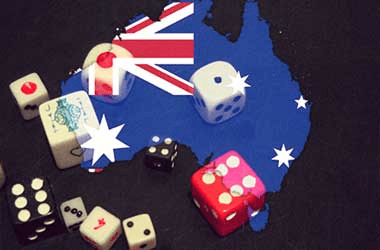What are the Australian Laws for Online Gambling?

The biggest betting nation on Earth, perhaps surprisingly, is Australia, and we've put together a quick look at some of its laws around online gambling. NB: the world of the internet can move rapidly, so do double-check information just in case things have changed since the time of writing.
Australian Gambling Laws
The Interactive Gambling Act was passed in 2001, and updated in 2017. This Act makes it illegal for online betting operators to advertise real money interactive wagering activities such as internet casinos and poker to players in Australia.
However, accessing and using interactive wagering services is not actually against the law for people in Australia. The Act is designed so that domestic companies can provide betting services to individuals located outside of Australia.
It's also worth noting there's a diversity of betting types. The betting exchange Betfair, for example, has a Tasmanian Gaming Licence and is (at the time of writing) Australia's only betting exchange. These exchanges differ from traditional bookies by allowing players to set their own odds and try to get them matched by another player, with the exchange profit coming from a fee applied to the winner.
Similarly, online sports betting is legal, but as this tends to be licensed by states the particular regulations can vary in different parts of the country.
Online Gambling Taxation (Individuals)

Taxation of winnings can vary a lot depending on where you live, with the US considering all betting winnings to be taxable and the UK considering none of them to be.
In Australia, bookies and the like must pay tax on income they make from running betting organisations/activities. For punters, it seems that the authorities consider that if betting is not your profession then any winnings are just good luck, and not taxable. This may not be the case for professional poker players, and if you're considering betting on a professional or semi-professional basis you may wish to contact the ATO (Australian Taxation Office) to double check.
Significant taxes on various forms of betting are paid by operators to the authorities. In 2015-16 betting revenue comprised 12% of taxation in the Northern Territory. This high level of taxation income is one reason why individuals are not required to pay tax on any winnings they might accrue.
Betting Flourishes
Despite the mentioned Act, Australia is the biggest betting nation (per head) in the world, with $209bn wagered in 2016-17. This comes to nearly $11,000 per capita, with the largest proportion ($174.6bn) coming from casinos, electronic games, and lotteries.
That concludes our quick run through the laws around betting in Australia. Unless you're a poker pro (and probably even then) you won't need to pay tax on winnings, which is nice. To read more about Australian online casinos click here.
